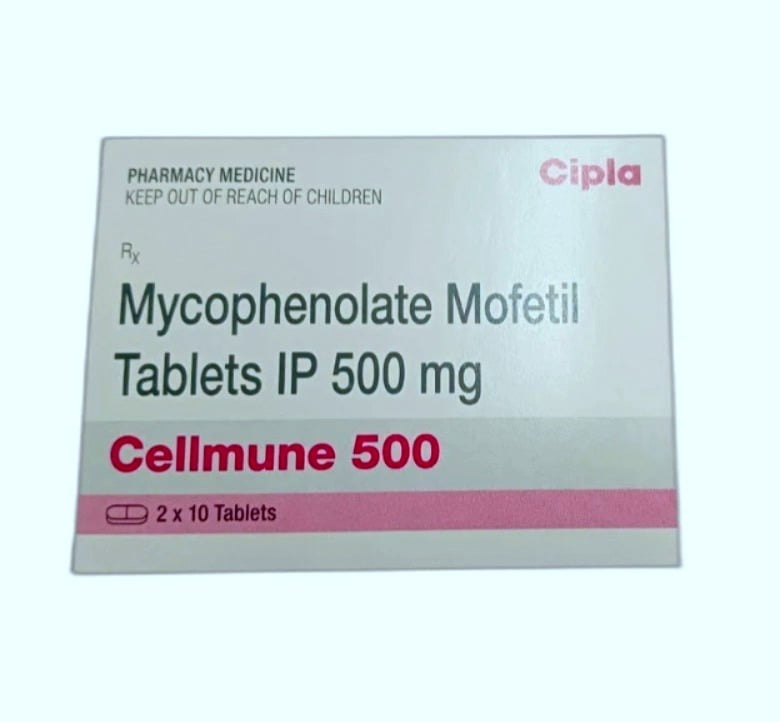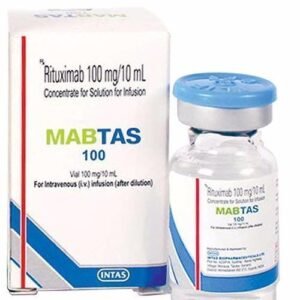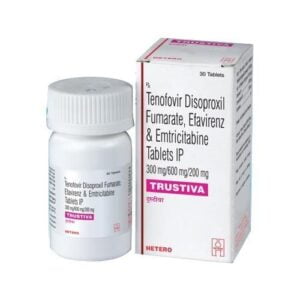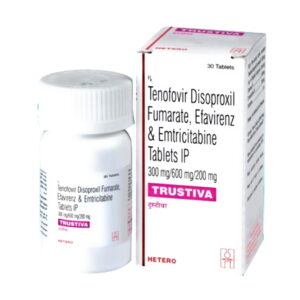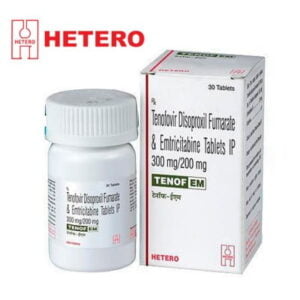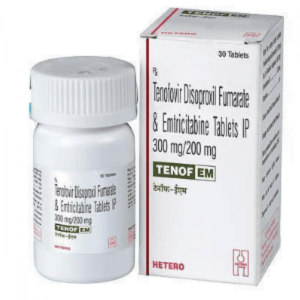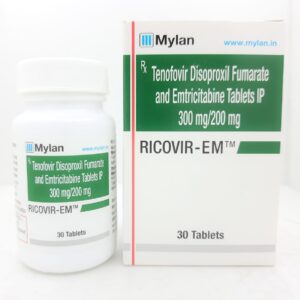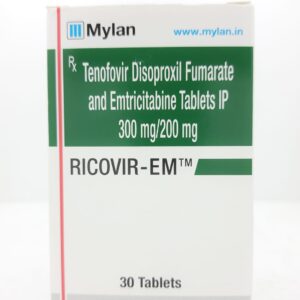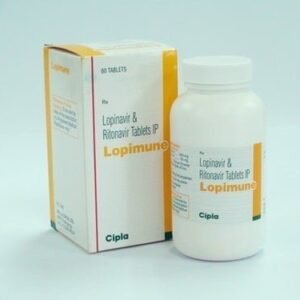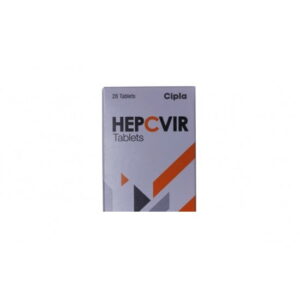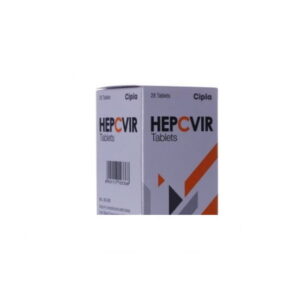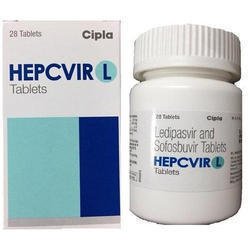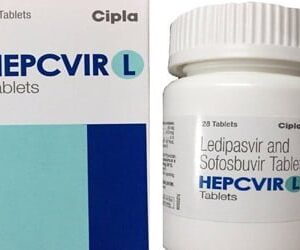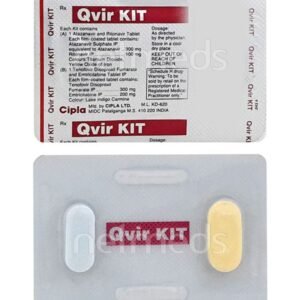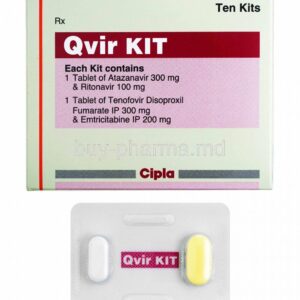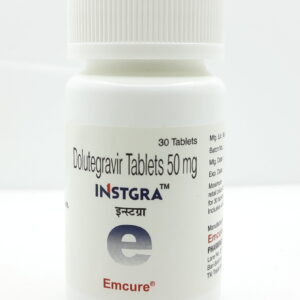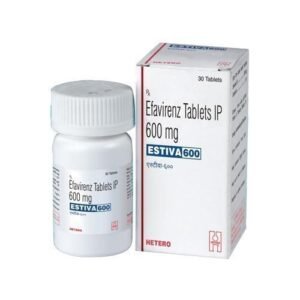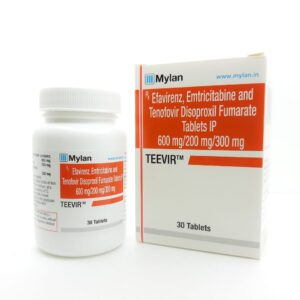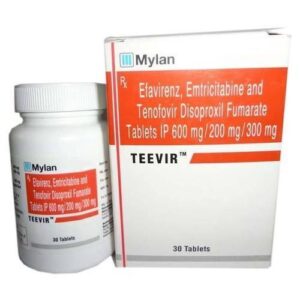Last Updated on September 8, 2024 by admin
Introduction to Cellmune 500mg Tablet
Cellmune 500mg, known generically as mycophenolate mofetil, is a potent immunosuppressant medication widely recognized and utilized in the medical field. It occupies a critical role in the pharmacological management of patients, particularly those undergoing organ transplantation. By attenuating the immune response, Cellmune 500mg helps in preventing the body’s natural defense system from identifying and attacking the transplanted organ as a foreign entity, thus reducing the risk of organ rejection.
The importance of immunosuppressant drugs like Cellmune 500mg cannot be overstated. These medications are instrumental in ensuring the longevity and functionality of transplanted organs, which profoundly impacts patients’ quality of life. In addition to organ transplantation, Cellmune 500mg is also employed in the treatment of various autoimmune conditions, highlighting its versatility and significance in the therapeutic landscape. Autoimmune diseases are characterized by an aberrant immune response wherein the body’s defense mechanism erroneously targets and damages its tissues, and immunosuppressants help modulate this response to mitigate harm.
Given its ability to modulate immune activity, Cellmune 500mg has become indispensable in contemporary medicine. The landscape of immunosuppressant therapy encompasses a variety of conditions beyond organ transplants, including rheumatoid arthritis and lupus nephritis. By inhibiting its targeted immune pathways, mycophenolate mofetil demonstrates its efficacy in creating a balanced immune response, which is crucial in both protecting transplanted organs and managing autoimmune disorders. Through consistent and regulated use, Cellmune 500mg offers a promising solution to maintain immune equilibrium, enhancing patient outcomes significantly.
As we delve deeper into the specifics of Cellmune 500mg, its uses, benefits, and associated precautions, we will gain a more comprehensive understanding of its pivotal role in medical treatments. This knowledge is imperative for both healthcare professionals and patients navigating the complex terrain of immunosuppressive therapy.
Uses of Cellmune 500mgTablet
Benefits of Cellmune 500mg Tablet
USES OF Cellmune 500mg
Cellmune 500mg, also known by its generic name mycophenolate mofetil, is primarily prescribed to prevent organ rejection in patients who have undergone kidney, liver, or heart transplants. This medication plays an essential role in immunosuppressive therapy, ensuring the transplanted organ is accepted by the recipient’s body. By inhibiting the proliferation of T and B lymphocytes, key immune cells, Cellmune 500mg effectively diminishes the body’s immune response to the new organ, thereby reducing the risk of rejection.
Beyond its primary application, Cellmune 500mg is also utilized in various off-label capacities, particularly in the management of certain autoimmune diseases. For instance, it has shown efficacy in treating conditions such as lupus nephritis, a severe kidney inflammation caused by systemic lupus erythematosus (SLE). Additionally, some patients with rheumatoid arthritis, systemic vasculitis, or pemphigus vulgaris have benefited from its immunosuppressive effects.
Specific patient populations gain considerable advantage from Cellmune 500mg. Transplant recipients with high immunological risk, such as those with a history of previous transplant rejection or those undergoing a second transplantation, particularly benefit from this medication. It’s also noteworthy that Cellmune 500mg is sometimes preferred in certain demographics, such as pediatric transplant recipients, due to its favorable side-effect profile compared to other immunosuppressive agents.
Renal transplant patients form the largest group among those using Cellmune 500mg, but liver and heart transplant patients also benefit significantly from its use. Moreover, individuals dealing with refractory autoimmune disorders, where conventional therapies have failed or caused intolerable side effects, find Cellmune 500mg to be an effective alternative. Ultimately, the decision to use Cellmune 500mg, whether for its primary or off-label uses, hinges on a thoughtful assessment by healthcare professionals considering both benefits and potential risks specific to each patient’s medical scenario.
Directions for Use
Cellmune 500mg, known generically as Mycophenolate Mofetil, is commonly prescribed for transplant patients to prevent organ rejection.The standard dosing instructions necessitate careful adherence to prescribed guidelines to maximize the drug’s efficacy while minimizing potential side effects.
For adults, the typical recommended dose varies depending on the type of transplant. The common dosage for kidney transplant patients is 1 gram taken two times a day, while for heart and liver transplant patients, the usual dosage is 1.5 grams twice daily. These dosages may be adjusted by healthcare providers to better suit individual patient needs.
Cellmune 500mg is usually taken orally after meals to lessen gastrointestinal discomfort, though it is important to follow specific dietary instructions provided by your doctor. It is crucial to take the medication consistently at the same times each day to maintain even levels in your bloodstream.
Following your doctor’s prescription precisely is essential. Unauthorized adjustments, such as changing the dose or frequency of administration, can jeopardize treatment efficacy and safety. Be sure to discuss any side effects or concerns with your healthcare provider to ensure they manage your dosage correctly.
If you miss a dose, take it as soon as you remember. However, if it is almost time for your next scheduled dose, skip the missed dose entirely. Do not double up on the medication to make up for a missed dose, as this could increase the risk of adverse effects. Maintaining an up-to-date medication schedule with reminders can be an effective strategy to avoid missed doses.
Overall, the correct administration of Cellmune 500mg, adherence to dosing instructions, and timely consultations with your doctor are pivotal to achieving the best possible outcomes in your treatment.
Benefits of Cellmune 500mg
Cellmune 500mg (mycophenolate mofetil) is a therapeutic agent predominantly used in transplant medicine to enhance the success of organ transplants by reducing the risk of rejection. It functions as an immunosuppressant, effectively lowering the activity of the immune system to prevent it from attacking the newly transplanted organ, thus ensuring its optimal integration and function within the recipient’s body.
The primary benefit of Cellmune 500mg lies in its ability to significantly mitigate the possibility of organ rejection, which is a major risk following transplant surgeries. Studies have demonstrated that patients receiving Cellmune 500mg alongside other immunosuppressants like cyclosporine and corticosteroids have higher rates of graft survival. This improved success rate translates directly to enhanced quality of life and long-term health prospects for transplant recipients.
Beyond its critical role in transplant medicine, Cellmune 500mg has also been recognized for its potential benefits in treating various autoimmune diseases. Conditions such as lupus nephritis, rheumatoid arthritis, and psoriasis, which involve an overactive immune response against the body’s own tissues, may see improvements with Cellmune 500mg therapy. By modulating the immune system, Cellmune 500mg helps in reducing the severity of symptoms and preventing flare-ups in these chronic conditions.
Another noteworthy benefit is its usage in certain dermatological conditions. Patients with severe, recalcitrant autoimmune skin diseases have also shown positive responses to Cellmune 500mg, suggesting its versatility in addressing immune-related disorders beyond organ transplantation. These additional benefits underscore the broad therapeutic applications of Cellmune 500mg, making it an invaluable tool in modern medicine.
Overall, Cellmune 500mg not only excels in prolonging the viability of transplanted organs but also offers promising avenues for managing various autoimmune and inflammatory diseases. Its capability to selectively suppress unwanted immune reactions while maintaining a reasonable safety profile makes it a cornerstone in both transplant medicine and the broader field of immunotherapy.
Medicinal Benefits
Cellmune 500mg, known generically as mycophenolate mofetil, is a cornerstone in transplant medicine. Its primary role lies in its ability to prevent organ rejection, crucial for patients undergoing organ transplantation. By working at a cellular level, Cellmune 500mg inhibits the proliferation of T and B lymphocytes, which are active participants in the body’s immune response. Specifically, it disrupts the synthesis of guanine nucleotides, essential for the growth of these immune cells. This immunosuppressive action mitigates the risk of the body rejecting a newly transplanted organ, thereby ensuring the longevity and functionality of the transplanted tissue.
Beyond its pivotal role in preventing organ rejection, Cellmune 500mg offers ancillary benefits that are instrumental in patient health. One of the significant advantages is its potential to reduce reliance on corticosteroids. Corticosteroids, while effective in managing immune responses, come with a litany of side effects when used long-term, including osteoporosis, hypertension, diabetes, and increased infection risk. By combining Cellmune 500mg with lower doses of corticosteroids, patients can achieve a balanced immune suppression with fewer adverse effects.
The reduction in corticosteroid dependency not only improves the patient’s quality of life but also contributes to better long-term health outcomes. For instance, minimizing corticosteroid use can significantly reduce the risk of complications such as bone density loss and metabolic disorders. This implies fewer hospitalizations and medical interventions, which is beneficial for both patients and healthcare systems.
Moreover, Cellmune 500mg’s ability to modulate the immune system has implications beyond transplantation. Research is ongoing into its potential applications in treating autoimmune diseases, where dampening an overactive immune response is desirable. This expands the medicinal benefits of Cellmune 500mg, making it a versatile tool in modern pharmacotherapy. Overall, Cellmune 500mg’s effective immunosuppression, coupled with its corticosteroid-sparing effect, establishes it as a valuable therapeutic agent in the medical field.
Drug Warnings and Interactions
When considering the use of Cellmune 500mg (mycophenolate mofetil), it is crucial to be aware of several significant warnings. This medication is not suitable for everyone, and specific individuals must exercise caution or avoid it entirely. Patients with known allergies to mycophenolate mofetil or any component of Cellmune 500mg should not use this medication due to the risk of severe allergic reactions. Additionally, patients with certain pre-existing conditions, such as active gastrointestinal disease or severe renal impairment, may require adjustments to their dosage or may need to seek alternative treatments.
Cellmune 500mg is an immunosuppressant, which means it lowers the body’s immune system activity. While this is beneficial for preventing organ rejection in transplant recipients, it also poses a higher risk of infections. Patients using Cellmune 500mg should be vigilant about signs of infection and report any symptoms such as fever, sore throat, or unusual fatigue to their healthcare provider immediately. Also, due to its immunosuppressive action, there is an increased risk of developing lymphomas and other malignancies.
Various drug interactions can affect the safety and efficacy of Cellmune 500mg. Medications that interact with Cellmune 500mg include certain antacids and proton pump inhibitors, which can reduce its absorption. Additionally, co-administration with cholestyramine, an agent used to lower cholesterol, may significantly decrease the plasma concentration of the active metabolite of Cellmune 500mg. This could potentially reduce its effectiveness, underscoring the need for careful management.
Certain supplements and over-the-counter medications can also interfere with Cellmune 500mg. For instance, live vaccines should be avoided as they might not be effective and could cause infections in patients with weakened immune systems. Other compounds such as acyclovir and its derivatives, when taken with Cellmune 500mg, can increase the concentration of both drugs, necessitating close monitoring.
It is imperative for patients to inform their healthcare provider about all the medications, supplements, and herbs they are currently taking. This includes any recent changes to their regimen, as this helps in anticipating potential interactions. By maintaining open communication with their healthcare provider, patients can ensure their treatment with Cellmune 500mg remains as safe and effective as possible.
Storage Instructions
Proper storage of Cellmune 500mg is crucial to ensure its effectiveness and safety. It should be stored at room temperature, ideally between 15°C and 30°C (59°F and 86°F). It is important to keep the medication in its original container to protect it from light and moisture, which can degrade its active ingredients. Always ensure that the container is tightly closed when not in use to prevent contamination and spillage.
Equally important is the medication’s location within the household. Cellmune 500mg should be kept out of the reach of children at all times. A high shelf or a locked cabinet is recommended to avoid accidental ingestion, which can lead to serious health complications.
For those who need to dispose of expired or no longer needed Cellmune 500mg, it is essential to do so responsibly. Medications should not be flushed down the toilet or poured down the drain as this can harm the environment. Instead, patients should follow local guidelines on drug disposal. Many communities offer drug take-back programs or specific disposal instructions that help reduce the risks associated with improper disposal.
In summary, effective storage and disposal of Cellmune 500mg not only preserve the medication’s efficacy but also ensure the safety of all household members and the environment. Adhering to these guidelines helps maintain the therapeutic benefits while minimizing potential risks.
DRUG INTERACTIONS
Cellmune 500mg can interact with a variety of medications, potentially altering their effectiveness or increasing the risk of side effects. Some notable interactions include:
- Antacids: Aluminum or magnesium-containing antacids may reduce the absorption of MMF.
- Cholestyramine: Can decrease the absorption and effectiveness of MMF.
- Acyclovir and Ganciclovir: These antiviral medications can increase the concentration of MMF in the blood, leading to an increased risk of side effects.
- Rifampin: May reduce the effectiveness of MMF by decreasing its levels in the blood.
- Live Vaccines: Avoid live vaccines, as MMF suppresses the immune system and may reduce the vaccine’s effectiveness or increase the risk of infection.
DRUG INTERACTIONS CHECKER LIST
It is essential to check for potential drug interactions with:
- Antacids (containing aluminum/magnesium)
- Cholestyramine
- Antiviral medications (e.g., Acyclovir, Ganciclovir)
- Rifampin
- Oral contraceptives
- Live vaccines
- Other immunosuppressants
- Antibiotics (e.g., Ciprofloxacin)
Side Effects of Cellmune 500mg
Cellmune 500mg, a commonly prescribed immunosuppressant, is instrumental in preventing organ rejection in transplant recipients. However, like any medication, it is associated with a range of side effects that vary in severity. Understanding these side effects is crucial for patients to manage their health effectively.
Common side effects of Cellmune 500mg are generally mild and manageable. Patients frequently report gastrointestinal issues such as nausea, vomiting, diarrhea, and abdominal pain. These side effects can often be mitigated through dietary adjustments or taking medication with food. Additionally, some may experience headache, dizziness, or insomnia, which usually diminish as the body adjusts to the medication. Monitoring and communication with a healthcare provider can help manage these symptoms effectively.
There are also more serious side effects that require immediate medical attention. A notable concern is the increased susceptibility to infections due to the immunosuppressive nature of Cellmune 500mg. Signs of infection such as fever, chills, persistent sore throat, or unusual fatigue should prompt immediate consultation with a healthcare provider. Furthermore, Cellmune 500mg can cause blood disorders, leading to symptoms like unusual bruising or bleeding, and reduced white blood cell counts, which increase infection risk.
Other rare, but severe, side effects include liver and kidney dysfunction, which might present as yellowing of the skin or eyes (jaundice), dark urine, or significant changes in urine output. Seizures, severe abdominal pain, or signs of an allergic reaction such as rash, itching, swelling, and difficulty breathing are also critical indicators necessitating emergency medical intervention.
Patients are advised to maintain open communication with their healthcare providers regarding any side effects experienced. Prompt reporting and medical advice are paramount in ensuring any serious conditions are swiftly addressed. Alterations in dosage or additional treatments may be required for optimal management and safety. Regular monitoring through blood tests and doctor visits is recommended to ensure the ongoing suitability and safety of Cellmune 500mg therapy.
HOW TO USE Cellmune 500mg
- Oral Administration: Take Cellmune 500mg exactly as prescribed, on an empty stomach unless otherwise directed.
- Missed Dose: If you miss a dose, take it as soon as you remember. If it’s almost time for your next dose, skip the missed dose and continue with your regular schedule. Do not take a double dose to make up for a missed one.
SAFETY ADVICE
warnings
![]() Alcohol
Alcohol
SAFE
Consuming alcohol with Cellmune 500mg Tablet does not cause any harmful side effects.
warnings
![]() Pregnancy
Pregnancy
CONSULT YOUR DOCTOR
Cellmune 500mg Tablet is unsafe to use during pregnancy as there is definite evidence of risk to the developing baby. However, the doctor may rarely prescribe it in some life-threatening situations if the benefits are more than the potential risks. Please consult your doctor.
warnings
![]() Breastfeeding
Breastfeeding
UNSAFE
Cellmune 500mg Tablet is unsafe to use during breastfeeding. Data suggests that the drug may cause toxicity to the baby.
warnings
![]() Driving
Driving
SAFE
Cellmune 500mg Tablet does not usually affect your ability to drive.
warnings
![]() Kidney
Kidney
SAFE IF PRESCRIBED
Cellmune 500mg Tablet is probably safe to use in patients with kidney disease. Limited data available suggests that dose adjustment of Cellmune 500mg Tablet may not be needed in these patients. Please consult your doctor.
warnings
![]() Liver
Liver
CONSULT YOUR DOCTOR
There is limited information available on the use of Cellmune 500mg Tablet in patients with liver disease. Please consult your doctor.
warning
![]() CHILDREN CAUTION
CHILDREN CAUTION
UNSAFE
Cellmune 500mg Tablet is not recommended for use in children and adolescents below 18 years.
![]() Cellmune 500mg Tablet Habit Forming : NO
Cellmune 500mg Tablet Habit Forming : NO
![]() expert advice
expert advice
Your doctor has prescribed Cellmune 500mg Tablet to stop your body from rejecting a transplanted organ (e.g. kidney, heart or liver).
HOW Cellmune 500mg WORKS
Cellmune 500mg works by inhibiting the enzyme inosine monophosphate dehydrogenase (IMPDH), which is crucial for the synthesis of guanine nucleotides in T and B lymphocytes. By suppressing these immune cells, MMF prevents them from attacking the transplanted organ or tissues in autoimmune diseases, reducing the risk of rejection and disease progression.
GENERAL WARNINGS
- Increased Risk of Infections: MMF suppresses the immune system, making patients more susceptible to infections. Patients should avoid exposure to infections and report any signs of infection to their healthcare provider.
- Use in Pregnancy: MMF can cause birth defects and miscarriage. Women of childbearing potential should use effective contraception and avoid pregnancy while on MMF.
- Regular Monitoring: Frequent blood tests are required to monitor blood counts, liver, and kidney function during treatment.
SAFETY ADVICE
- Avoid Live Vaccines: Live vaccines may not be effective or could cause an infection due to the immunosuppressive effects of MMF.
- Sun Protection: MMF can increase sensitivity to sunlight, so patients should use sunscreen and protective clothing to avoid sunburn.
- Infection Prevention: Practice good hygiene and avoid contact with sick individuals to reduce the risk of infection.
DIET & LIFESTYLE ADVICE
- Healthy Diet: Maintain a balanced diet to support overall health and reduce the risk of gastrointestinal side effects.
- Hydration: Stay well-hydrated, especially if experiencing diarrhea, to prevent dehydration.
- Avoid Alcohol: Alcohol may increase the risk of liver damage and should be avoided or limited.
- Avoid Grapefruit: Grapefruit can interact with MMF and should be avoided.
SPECIAL ADVISE
- Contraception: Women of childbearing potential should use effective contraception during treatment and for six weeks after stopping MMF.
- Monitoring: Regular blood tests are crucial to monitor for side effects and ensure the medication is working effectively.
- Travel: Consult your healthcare provider before traveling, especially to areas where infections are common, as your immune system will be suppressed.
OTHER INFORMATION
- Breastfeeding: MMF should not be used during breastfeeding, as it can pass into breast milk and harm the infant.
- Surgery: Inform your healthcare provider if you are scheduled for surgery, as MMF may affect wound healing and increase the risk of infection.
FAQs ABOUT Cellmune 500mg
Q1: Can Cellmune 500mg cure autoimmune diseases?
A: Cellmune 500mg is not a cure for autoimmune diseases but helps manage symptoms by suppressing the immune system.
Q2: How long will I need to take Cellmune 500mg after a transplant?
A: Most patients will need to take Cellmune 500mg long-term to prevent organ rejection. Your healthcare provider will determine the appropriate duration.
Q3: Can I take Cellmune 500mg with other medications?
A: Always inform your healthcare provider of all medications you are taking, as Cellmune 500mg can interact with several other drugs.
Q4: What should I do if I miss a dose?
A: Take the missed dose as soon as you remember unless it’s close to the time for your next dose. Do not double the dose to catch up.
Q5: Is it safe to use Cellmune 500mg during pregnancy?
A: No, Cellmune 500mg can cause serious birth defects and should not be used during pregnancy.
Q6: Can I stop taking Cellmune 500mg on my own?
A: Do not stop taking Cellmune 500mg without consulting your healthcare provider, as this could increase the risk of organ rejection or disease flare-up.
Q7: Are there any dietary restrictions while taking Cellmune 500mg?
A: Avoid grapefruit and grapefruit juice, and discuss any other dietary concerns with your healthcare provider.
Q8: What are the signs of an allergic reaction to Cellmune 500mg?
A: Signs include rash, itching, swelling, severe dizziness, and difficulty breathing. Seek immediate medical attention if you experience these symptoms.
Q9: Can Cellmune 500mg be used in children?
A: Cellmune 500mg can be used in children for specific indications, but the dosage and use must be carefully monitored by a healthcare provider.
Q10: What should I do if I experience severe side effects?
A: Contact your healthcare provider immediately if you experience severe side effects, such as signs of infection, unexplained bleeding, or severe gastrointestinal symptoms.
REFERENCES:
- FDA Mycophenolate Mofetil Information
- Mayo Clinic – Mycophenolate
- Drugs.com – Mycophenolate Mofetil
- MedlinePlus – Mycophenolate
- UpToDate – Mycophenolate Mofetil

